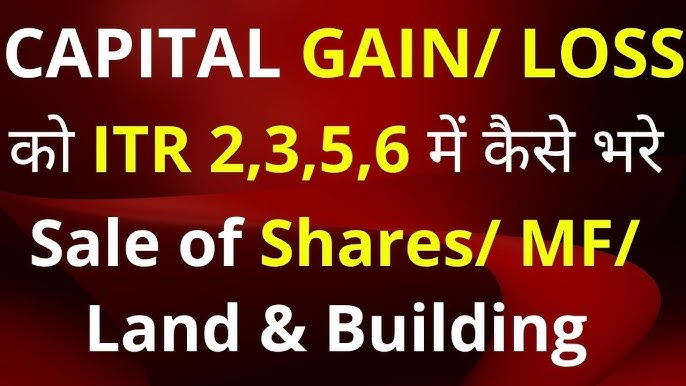How to File Income Tax Return for Share Trading in India: A Comprehensive Guide 2023

The world of stock trading is captivating for its opportunities and returns. However, if you’re a trader in India, it’s crucial to understand the tax implications of your stock market activities and the process to file the appropriate income tax return. In this article, we will guide you step-by-step on how to file income tax return for share trading in India.
1. Understand the Nature of Your Stock Activities:
Contents
- 1. Understand the Nature of Your Stock Activities:
- 2. Identify the Type of Gains:
- 3. Understand Tax Implications for Futures & Options (F&O):
- 4. Expenses Deduction for Traders:
- 5. Choose the Correct ITR Form:
- 6. Report Turnover:
- 7. Calculate Advance Tax:
- 8. Using ITR Software & Pre-filled Data:
- 9. Disclosing All Trades:
- 10. Audit Requirement:
- 11. Submission & Verification:
- 12. Keep Records:
- Conclusion
Before diving into tax filing, one must ascertain whether they are an ‘Investor’ or a ‘Trader.’
- Investors: Buy shares with a long-term perspective. Their gains are treated as ‘Capital Gains’ – either short-term or long-term based on the holding period.
- Traders: Engage in buying/selling stocks more frequently to earn profits from market fluctuations. Their earnings are categorized as ‘Business Income.’
2. Identify the Type of Gains:
- Short-Term Capital Gain (STCG): If equity shares are sold within one year of purchase.
- Long-Term Capital Gain (LTCG): If equity shares are held for more than one year.
Note: As of recent regulations, LTCG exceeding ₹1 lakh on the sale of equity shares is taxable at 10% without the benefit of indexation.
3. Understand Tax Implications for Futures & Options (F&O):
Profits from F&O trading are considered as business income and not as capital gains. Therefore, taxation is according to the applicable slab rates.

4. Expenses Deduction for Traders:
Traders can reduce their taxable income by claiming expenses like:
- Brokerage fees
- Internet charges
- Telephone costs
- Advisory fees
- Depreciation on computers
- Rent of premises, if applicable
Maintain a meticulous record of these to claim deductions.
5. Choose the Correct ITR Form:
- Investors can file returns using ITR-2.
- Individual Traders (Business Income) should use ITR-3.
Ensure you select the correct form to avoid any future complications.
6. Report Turnover:
For those with business income from share trading, reporting turnover is crucial. Here’s how:
- For Equity: The absolute profit of all trades is your turnover.
- For F&O: The sum of favorable and unfavorable differences, plus the premium on options trade, constitutes the turnover.
7. Calculate Advance Tax:
If your tax liability exceeds ₹10,000 in a financial year, you must pay advance tax. This is especially pertinent for traders as their income might not be subject to TDS, leading to a substantial year-end tax liability.

8. Using ITR Software & Pre-filled Data:
The Income Tax Department provides facilities where a lot of your data, like STCG, LTCG, and other details, are pre-filled, making the process smoother. You can also use government-approved software solutions for easier ITR filing.
9. Disclosing All Trades:
Even if you’ve incurred losses, it’s essential to disclose all trades. These losses can be carried forward and set off against future gains, reducing tax liabilities in subsequent years.
10. Audit Requirement:
If your turnover from share trading exceeds ₹2 crores or if you report losses from F&O trading and wish to carry them forward, your accounts must be audited under Section 44AB.
11. Submission & Verification:
Once you’ve filled out the appropriate ITR form, submit it electronically. Upon submission, you’ll need to verify your return using Aadhaar OTP, Electronic Verification Code, or by sending a signed ITR-V to the Centralized Processing Center in Bengaluru.
12. Keep Records:
Retain contract notes, proof of expenses, and other relevant documents for at least six years, as the Income Tax Department might require them for scrutiny or assessments.
Conclusion
While the process might seem daunting, understanding these steps simplifies the tax return filing process for share trading. Given the complexities, especially for frequent traders, it’s wise to consult a tax expert or chartered accountant familiar with stock market transactions to ensure accurate and compliant filings.


Leave a Reply